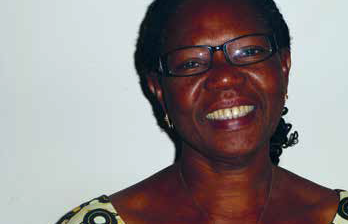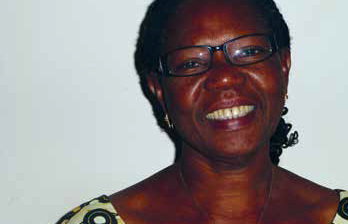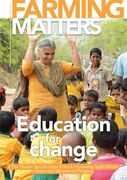The UN’s decade of education for sustainable development (2005-2014) has brought few benefits for the rural population in the Sahel. Most of the region’s education programmes are inadequate, discriminating against girls and not taking into account the differing social, cultural and economic contexts. Yet it is also possible to find many effective strategies. Fatou Batta looks at some of these inspiring forms of education.

The UN’s decade of education for sustainable development (2005-2014) has brought few benefits for the rural population in the Sahel. Most of the region’s education programmes are inadequate, discriminating against girls and not taking into account the differing social, cultural and economic contexts. They draw rural youth into urban centres that are ill-prepared for an influx of people lacking technical skills. As a result, the ranks of the unemployed get larger every day.
Obviously, education is important to inspire behavioural change in agriculture. Literate and educated farmers are more inclined to adopt agricultural innovations and better able to access information that can strengthen their farming systems. But how can it be best done? Here, I present three examples of innovative education strategies that we use in Burkina Faso.
Study tours to rural areas. During these tours, elementary school pupils and their teachers learn about integrated soil fertility management, including the establishment of contour bunds, manure pits and composting. They then raise their parents’ awareness. Many of these former pupils are now agents of change in their communities. Similar environmental education tours can be used to help farmers learn about the effects of climate change on their production and their livelihoods and possible adaptation measures.
Bilingual education programmes. These programmes teach in French and in the children’s mother tongue, involving the whole community. Themes include animal husbandry, gardening, community organisation and socio-economic innovations. This way of educating strengthens endogenous knowledge. It also raises awareness in the communities about the need to train young people in production techniques in order to reduce their exodus to the cities. And it makes students more aware of the importance of natural resources.
Training of farmers by farmers is an effective strategy to increase farmers’ access to information and technical knowledge. Farmers are more readily convinced by information and knowledge provided by peers who live in the same environment and face similar challenges. A review of this strategy has confirmed its relevance and effectiveness in scaling up agricultural practices that increase food security and farming system resilience. I believe these experiences can provide us with some valuable inspiration!
Fatou Batta
Fatou Batta is the Groundswell International Co-coordinator for West Africa and also the director of Association Nourrir sans Détruire, ANSD.
E-mail: fbatta@groundswellinternational.org


